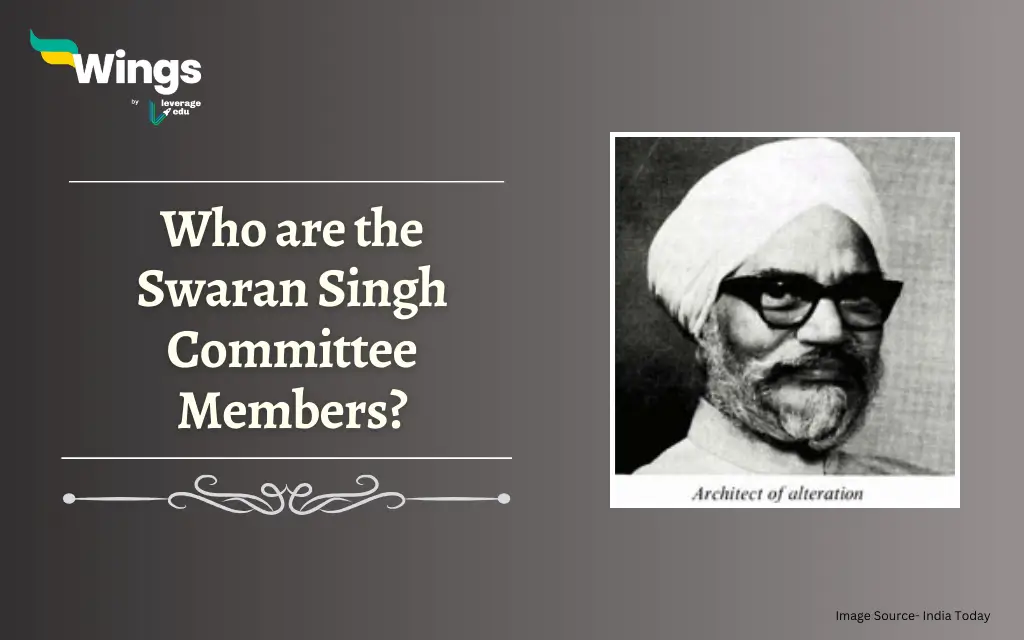In 1976, during the period of national emergency in India, the government formed the Swaran Singh Committee to explore ways to include Fundamental Duties in the Constitution. The committee was led by Dr. Swaran Singh, a senior leader and former Union Minister. Their primary goal was to raise awareness among citizens about their responsibilities alongside their rights. This led to the creation of Article 51A, which lists ten key Fundamental Duties. Understanding the role of the Swaran Singh Committee members is crucial to grasp how these duties became a formal part of the Indian Constitution.
Background of the Swaran Singh Committee
The Indian government realised that while the Constitution guaranteed fundamental rights to citizens, it was equally important to define their duties. Prime Minister Indira Gandhi appointed the committee to recommend necessary changes based on India’s historical and social context. The committee strongly advised the inclusion of Fundamental Duties to encourage responsible citizenship.
The government accepted this suggestion, and the 42nd Amendment Act of 1976 added these duties under a new part of the Constitution, Part IVA. This amendment also brought changes to the Preamble and other parts of the Constitution.
Also Read: Lord Dalhousie: Early Life and Role in India
Members of the Swaran Singh Committee
The committee consisted of 12 members, with Dr. Swaran Singh as Chairman. The members included:
| Name | Role |
| Swaran Singh | Chairman |
| Vasanth Sathe | Member |
| A.R. Antulay | Member |
| B.N. Banerjee | Member |
| Rajni Patel | Member |
| Dinesh Goswami | Member |
| H.R. Gokhale | Member |
| D.P. Singh | Member |
| V.N. Gadgil | Member |
| C.M. Stephen | Member |
| S.S. Ray | Member |
| V.A. Sayed Muhammed | Member |
How Many Fundamental Duties Did the Swaran Singh Committee Recommend?
After thorough study, the committee recommended eight Fundamental Duties. These duties focused on fostering respect for the Constitution, encouraging national harmony, protecting public property, and promoting a sense of responsibility among citizens. However, the government later expanded the list to ten duties, which were formally added to the Constitution through the 42nd Amendment. Knowing the original number of duties helps us appreciate the foundational ideas behind the current list.
Summary of Recommendations and Their Status
| Recommendation | Details | Status |
| Suggested laws to penalise those who ignore their duties. | Proposed a new chapter defining citizens’ Fundamental Duties. | Accepted |
| Citizens to be aware of their duties alongside their rights | Suggested that citizens should know their responsibilities as well. | Accepted |
| Introduction of eight specific Fundamental Duties | Listed eight key duties covering respect for symbols, harmony, etc. | Partially accepted (10 included) |
| Parliament’s power to impose penalties for non-compliance | Legal consequences for failing to fulfil duties | Not accepted |
| Exclusion of judicial review on punishment laws | Proposed no court challenge for laws punishing non-compliance. | Not accepted |
| Proposed alignment of laws with the Fundamental Duties concept. | Suggested punishment for failing duties. | Not accepted |
| Paying taxes as a Fundamental Duty | Paying taxes is a Fundamental Duty | Not accepted |
| Parliament review of laws related to civic responsibilities | Recommended, including tax payment as a duty. | Accepted in principle |

Explore: Lord William Bentinck- The First Governor-General of India
What are the Fundamental Duties Added?
In 1976, the Indian Constitution was amended to include ten Fundamental Duties for citizens. These duties were suggested by the Swaran Singh Committee to remind every Indian about their responsibilities toward the nation. Here’s a clear explanation of each duty:
| S.No | Fundamental Duty | Description |
| 1. | Respect the Constitution and National Symbols | Follow the Constitution and honor symbols like the National Flag and Anthem to promote national pride and unity. |
| 2. | Honour the Ideals of the Freedom Movement | Uphold values such as justice, equality, and freedom that guided India’s struggle for independence. |
| 3. | Protect India’s Sovereignty and Unity | Safeguard the country’s independence and work towards its unity and integrity. |
| 4. | Defend the Country | Be prepared to serve and protect the nation in times of need. |
| 5. | Promote Harmony and Brotherhood | Encourage peace and understanding among diverse communities and respect the dignity of women. |
| 6. | Preserve India’s Cultural Heritage | Protect and value India’s traditions, history, and cultural legacy. |
| 7. | Protect the Environment | Care for nature, wildlife, and all living beings; keep the environment clean and safe. |
| 8. | Develop Scientific Thinking | Encourage curiosity, rational thinking, and reform-oriented mindset for positive societal change. |
| 9. | Safeguard Public Property | Avoid damage to public resources and maintain cleanliness and order in public places. |
| 10. | Chase for Excellence | Strive for improvement and excellence in personal and community efforts to contribute to nation-building. |
Conclusion
The Swaran Singh Committee significantly influenced the Indian Constitution by recommending the inclusion of Fundamental Duties. While these duties are not legally enforceable, they serve as a moral compass guiding citizens to act responsibly. By understanding the committee’s role, we appreciate how these duties contribute to national unity, integrity, and progress. This knowledge is valuable for students and all citizens committed to building a stronger India.
Related Reads
We hope this blog on ‘Who are the Swaran Singh Committee Members?’ was informative and helped boost your general knowledge. For more engaging and insightful content on historical events and Famous Personalities, visit the General Knowledge, and UPSC Prep section on Leverage Edu.


 One app for all your study abroad needs
One app for all your study abroad needs












 60,000+ students trusted us with their dreams. Take the first step today!
60,000+ students trusted us with their dreams. Take the first step today!